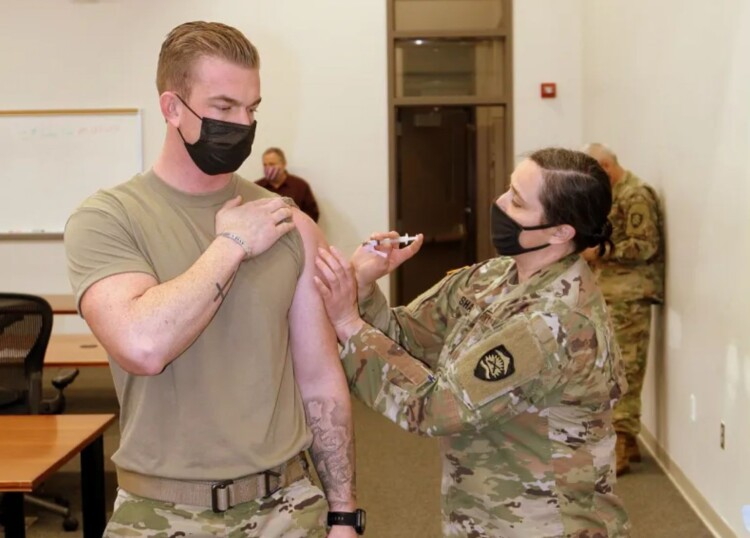Introduction
I fully support a recent article published by Breitbart News describing that former troops are suing the U.S. government for lost pay and benefits due to the Biden administration’s military vaccine mandate https://www.breitbart.com/politics/2023/11/20/former-troops-punished-over-bidens-vaccine-mandate-sue-for-billions-in-lost-wages/. I would point out this extends to our Military Academies and our ROTC Commissioning Programs. The long-standing controversy surrounding the vaccine mandate for former troops has shed light on the perceived failure of senior military leaders to protect and prioritize the well-being of those they are sworn to serve. This essay argues that the Secretary of Defense, Chairman of the Joint Chiefs, Service Chiefs, and other Generals and Admirals who did not stand up for their troops have demonstrated poor leadership decisions. Safeguarding the troops extends beyond their medical health, protecting them from the influences of politicization. By following the politicization of COVID-19 at the expense of their men and women, these leaders have failed in their highest responsibility.
The Issues
- Safeguarding Troops: A Core Responsibility
The primary responsibility of military leaders is to safeguard the troops under their command. This obligation encompasses their physical safety in combat and their overall well-being, including medical health. The commitment to protect troops should extend to shielding them from the influences of political agendas that may compromise their welfare.
- Vaccine Mandate: A Controversial Decision
The vaccine mandate for former troops has sparked widespread debate. While public health measures are vital during a global pandemic, how the vaccine mandate was enforced raises concerns about prioritizing political agendas over the troops’ interests. By punishing former troops who did not comply, military leaders have failed to demonstrate the empathy and understanding required to maintain the trust and respect of their subordinates.
- Failure of Leadership
The Secretary of Defense, Chairman of the Joint Chiefs, Service Chiefs, and other senior military leaders are responsible for the decisions made regarding the vaccine mandate. Their failure to stand up for their troops, challenge politicization, and advocate for alternative solutions has questioned their commitment to protect those who serve under them. Leadership requires making difficult choices and prioritizing the troops’ well-being over political pressures. Regrettably, these leaders have fallen short in this regard.
- Impact on Troop Morale and Retention
The consequences of poor leadership decisions reverberate far beyond the immediate issue. Punishing former troops over the vaccine mandate erodes trust, undermines morale, and weakens the bond between leaders and the leaders. When troops witness their leadership prioritizing political considerations over their well-being, it raises doubt and diminishes their sense of loyalty and commitment to the organization. This, in turn, can have a detrimental impact on retention rates and overall military effectiveness.
- The Importance of Accountability and Change
Accountability is crucial in any leadership position, especially regarding the well-being of those under one’s command. The failure of the Secretary of Defense, Chairman of the Joint Chiefs, Service Chiefs, and other senior military leaders to protect their troops from the influences of politicization is a significant lapse in leadership. These leaders need to acknowledge their mistakes, take responsibility for their actions, and work towards rectifying the situation.
Moving forward, military leaders must prioritize the welfare of their troops above all else. This includes ensuring that decisions regarding public health measures are made with careful consideration, empathy, and an understanding of the potential consequences. It also necessitates standing up against politicization and defending the rights and well-being of troops who have served honorably.
In conclusion, the punishment of former troops over the vaccine mandate indicates poor leadership decisions by senior military leaders. Safeguarding the troops is a responsibility to protect their medical health and shield them from the influences of politicization. By following the politicization of Covid-19, these leaders have failed to prioritize the well-being of their men and women. True leadership requires advocating for the troops, even when making difficult choices and challenging political pressures. It is crucial for accountability to be upheld and for changes to be made to ensure that the troops’ trust, morale, and commitment are preserved and strengthened.
Donald C. Bolduc
Already have an account? Sign In
Two ways to continue to read this article.
Subscribe
$1.99
every 4 weeks
- Unlimited access to all articles
- Support independent journalism
- Ad-free reading experience
Subscribe Now
Recurring Monthly. Cancel Anytime.











COMMENTS